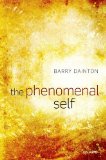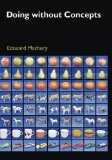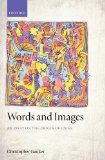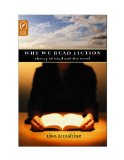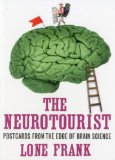out in paperback – ‘The Phenomenal Self’ and ‘Doing Without Concepts’
July 30, 2011
Two Oxford University Press books are now out in paperback:
The Phenomenal Self by Barry Dainton, originally published in 2008.
Product description from the publisher:
Barry Dainton presents a fascinating new account of the self, the key to which is experiential or phenomenal continuity.
Provided our mental life continues we can easily imagine ourselves surviving the most dramatic physical alterations, or even moving from one body to another. It was this fact that led John Locke to conclude that a credible account of our persistence conditions – an account which reflects how we actually conceive of ourselves – should be framed in terms of mental rather than material continuity. But mental continuity comes in different forms. Most of Locke’s contemporary followers agree that our continued existence is secured by psychological continuity, which they take to be made up of memories, beliefs, intentions, personality traits, and the like. Dainton argues that a better and more believable account can be framed in terms of the sort of continuity we find in our streams of consciousness from moment to moment. Why? Simply because provided this continuity is not lost – provided our streams of consciousness flow on – we can easily imagine ourselves surviving the most dramatic psychological alterations. Phenomenal continuity seems to provide a more reliable guide to our persistence than any form of continuity. The Phenomenal Self is a full-scale defence and elaboration of this premise.
The first task is arriving at an adequate understanding of phenomenal unity and continuity. This achieved, Dainton turns to the most pressing problem facing any experience-based approach: losses of consciousness. How can we survive them? He shows how the problem can be solved in a satisfactory manner by construing ourselves as systems of experiential capacities. He then moves on to explore a range of further issues. How simple can a self be? How are we related to our bodies? Is our persistence an all-or-nothing affair? Do our minds consist of parts which could enjoy an independent existence? Is it metaphysically intelligible to construe ourselves as systems of capacities? The book concludes with a novel treatment of fission and fusion.
Doing without Concepts by Edouard Machery, originally published in 2009.
(amazon.co.uk – paperback ed. Sep 2011)
Over recent years, the psychology of concepts has been rejuvenated by new work on prototypes, inventive ideas on causal cognition, the development of neo-empiricist theories of concepts, and the inputs of the budding neuropsychology of concepts. But our empirical knowledge about concepts has yet to be organized in a coherent framework.
In Doing without Concepts, Edouard Machery argues that the dominant psychological theories of concepts fail to provide such a framework and that drastic conceptual changes are required to make sense of the research on concepts in psychology and neuropsychology. Machery shows that the class of concepts divides into several distinct kinds that have little in common with one another and that for this very reason, it is a mistake to attempt to encompass all known phenomena within a single theory of concepts. In brief, concepts are not a natural kind. Machery concludes that the theoretical notion of concept should be eliminated from the theoretical apparatus of contemporary psychology and should be replaced with theoretical notions that are more appropriate for fulfilling psychologists’ goals. The notion of concept has encouraged psychologists to believe that a single theory of concepts could be developed, leading to useless theoretical controversies between the dominant paradigms of concepts. Keeping this notion would slow down, and maybe prevent, the development of a more adequate classification and would overshadow the theoretical and empirical issues that are raised by this more adequate classification. Anyone interested in cognitive science’s emerging view of the mind will find Machery’s provocative ideas of interest.
